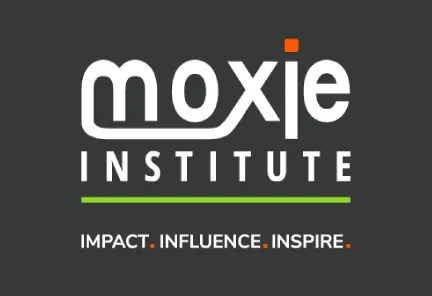From start-up entrepreneurs to industry leaders, actors have knowledge to impart on many different careers outside of acting. Most roles in the business world could take a cue from Hollywood and Broadway. In fact, many well known speakers, like Steve Jobs, relied on the sage advice Broadway actors to ignite their live presentations.
How can you harness the benefits of professional acting for yourself as a speaker? Every presenter wants to be personable and charismatic on stage–just because you didn’t major in Theater doesn’t mean you’re out of luck.
PRESENCE: BE HERE NOW
You’ve probably seen Harvard social psychologist and TED speaker Amy Cuddy’s powerful TED Talk “Your Body Language Shapes Who You Are,” but have you read Cuddy’s book Presence?
If not, it’s a must read. Here’s the cliff-notes version: If you are fully present and experiencing your situation, then you’ll perform better. Actually engaging in the present and what you’re doing at that moment will show your genuine feelings and emotions about your project.
When actors execute a scene, they remain firmly present in the moment of that scene. This allows the authentic reactions of their characters to shine through. Proper preparation, i.e. knowing their lines and cues, makes this total presence possible.
Similarly, speakers need to be able to respond to audience cues–whether those cues come in the middle of their presentation or the Q and A session afterwards. Proper engagement shows authenticity and a genuine respect for your audience. All of that comes from being present.
And how do you stay immersed in the moment? That brings us to our next topic…
Deep breathing.
DON’T FIGHT OR FLEE: BREATHE
What is a diaphragm and how can it cure your yellow belly? Your diaphragm is the muscle in your abdomen that mediates your breaths. What does it have to do with fear?
You know how being unprepared or riding a roller coaster causes your palms to get sweaty, your knees to get weak and your breathing to become shallow? This is your body’s “fight-or-flight” response to perceived dangers. And that shallow breathing? That’s the worst way to handle it.
Handle it by digging deep for your breaths using your diaphragm. Deep breathing activates your parasympathetic reaction to combat against that “fight-or-flight” feeling speaking in public often brings. And using your diaphragm to achieve this supports your voice as well.
So how do you breathe diaphragmatically? Imagine you have a balloon in your belly. Breathe in deeply to inflate the balloon, pulling the air down into your navel. Once your lungs are completely full; exhale slowly until all air has left. Congratulations–you’ve just taken your first diaphragmatic breath.
The voice support diaphragmatic breathing provides leads us to another trick in the actor’s toolbox: keeping those tools in tip-top shape.
TUNE YOUR INSTRUMENTS: YOUR VOICE AND BODY
Actors know this idea intimately. As they create or portray new characters, they change the way they hold their own bodies to give off certain perceptions.
Need to show that a character is timid and untrusting? Roll your shoulders in and close your body off to others. Want to appear confident and genial? Do the opposite: roll your shoulders back, make eye contact and open yourself to your audience.
Speakers can adopt the acting technique of character creation and “fake it until they become it,” in the words of Cuddy. Strong body language makes your audience–and you–believe in what you have to say.
Your body is one of your essential speaking tools–as is your voice. This is why diaphragmatic breathing is necessary: it oxygenates your body and supports your voice, making it strong and clear.
Now that your instruments are warmed-up and ready, it’s time to rehearse your speech like an actor.
And what do all of these strategies add up to? They help you develop your stage presence.
STAGE PRESENCE: BE YOUR MOST AUTHENTIC SELF
In the business world, “executive presence” has long been a phrase floating around to describe competent and knowledgeable leaders (that includes emotional know-how too). And stage presence is exactly the same: connection and competency. In either situation, your audience wants to listen to you because they trust you and trust you know what you’re talking about.
The great part about cultivating a stage presence: it happens naturally when you practice the strategies and tactics listed above. Many confuse stage presence for a put-on persona, but it isn’t. It’s what happens when you are comfortable in your own skin and sufficiently practiced.
The techniques perfected and used by actors transfer over to the world of public speaking seamlessly. Why reinvent the wheel when you can get behind the wheel of a car and drive? In the eternal words of Shakespeare, “to thine own self be true.” Now get out there and break a leg.









